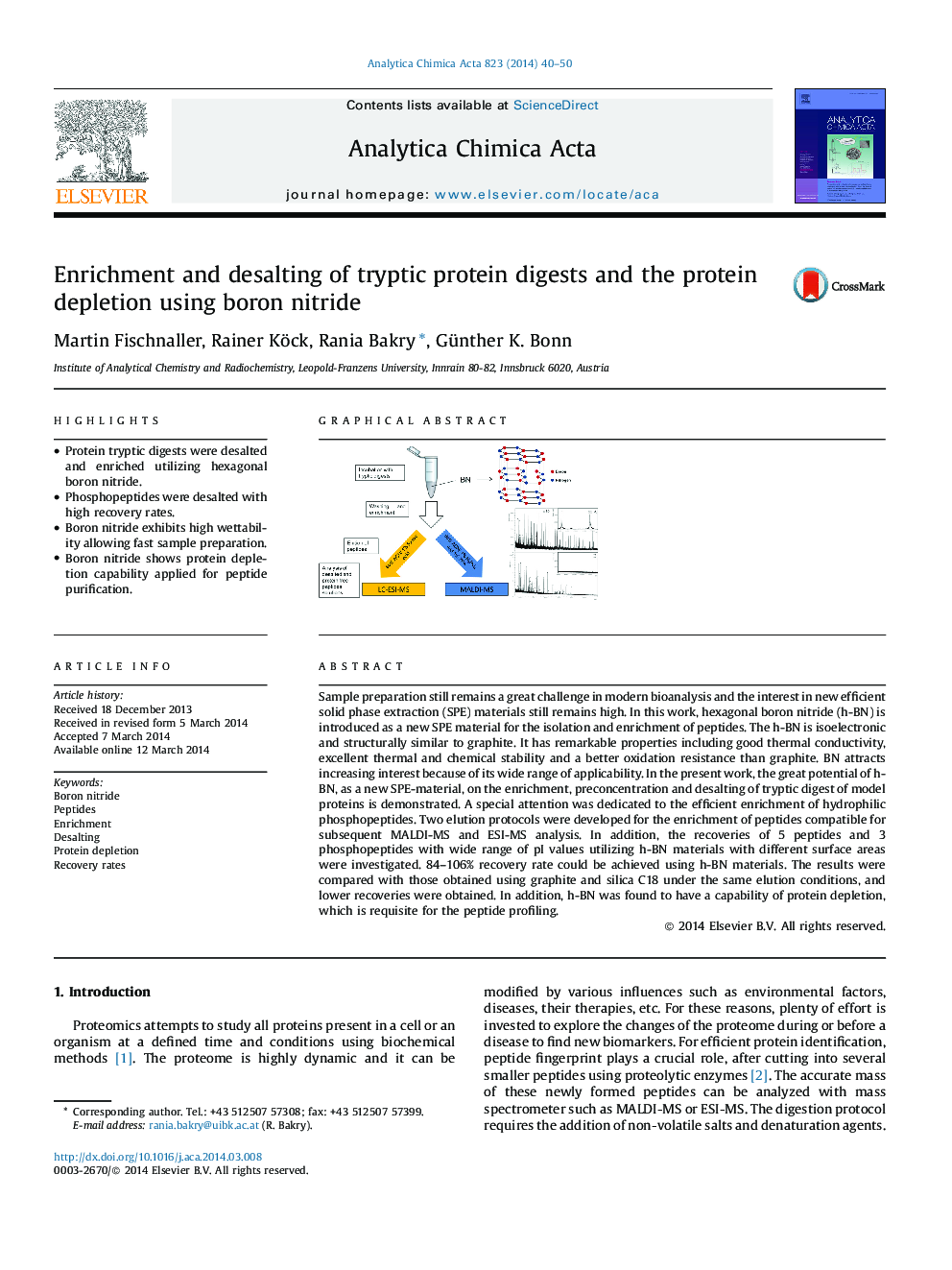| Article ID | Journal | Published Year | Pages | File Type |
|---|---|---|---|---|
| 1164793 | Analytica Chimica Acta | 2014 | 11 Pages |
•Protein tryptic digests were desalted and enriched utilizing hexagonal boron nitride.•Phosphopeptides were desalted with high recovery rates.•Boron nitride exhibits high wettability allowing fast sample preparation.•Boron nitride shows protein depletion capability applied for peptide purification.
Sample preparation still remains a great challenge in modern bioanalysis and the interest in new efficient solid phase extraction (SPE) materials still remains high. In this work, hexagonal boron nitride (h-BN) is introduced as a new SPE material for the isolation and enrichment of peptides. The h-BN is isoelectronic and structurally similar to graphite. It has remarkable properties including good thermal conductivity, excellent thermal and chemical stability and a better oxidation resistance than graphite. BN attracts increasing interest because of its wide range of applicability. In the present work, the great potential of h-BN, as a new SPE-material, on the enrichment, preconcentration and desalting of tryptic digest of model proteins is demonstrated. A special attention was dedicated to the efficient enrichment of hydrophilic phosphopeptides. Two elution protocols were developed for the enrichment of peptides compatible for subsequent MALDI-MS and ESI-MS analysis. In addition, the recoveries of 5 peptides and 3 phosphopeptides with wide range of pI values utilizing h-BN materials with different surface areas were investigated. 84–106% recovery rate could be achieved using h-BN materials. The results were compared with those obtained using graphite and silica C18 under the same elution conditions, and lower recoveries were obtained. In addition, h-BN was found to have a capability of protein depletion, which is requisite for the peptide profiling.
Graphical abstractFigure optionsDownload full-size imageDownload as PowerPoint slide
